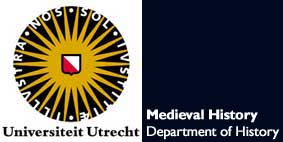 |
CulturalMemoryandtheResourcesofthepast |
|
|
|
BIBLICAL PAST AS AN IMAGINED COMMUNITY Principal Investigator: Mayke de Jong The literate elite in early medieval Europe, including rulers and lay aristocrats, operated within a biblical frame of reference. The Latin Bible was itself the most important cultural resource. The Old Testament in particular was perceived as supreme law and authoritative history, and provided models for secular and ecclesiastical leadership. Early medieval discourses were increasingly informed by an alternative biblical reality which operated as an ‘imagined community’, as defined by Benedict Anderson (1983), providing cultural resources for the building of new political communities. The cohesion of the new post-Roman kingdoms was increasingly conceptualised in biblical terms, as a bond between God, king and people, with the ruler being accountable to God for the salvation of the Christian people. In this context, populus was a concept which denoted the ‘in-group’, as opposed to the pagan gentes outside the Christian orbit (Pohl 1998; Geary, 2002; Pohl 2005). From the 790s onwards, Populus dei transcended earlier ethnically defined notions the polity; together with ecclesia, it facilitated the conceptualisation of a non-ethnic ‘empire’ (De Jong, 2000). It was not just ‘the Bible’, however, that served as a source of order and leadership. From the late 8th century onwards, a legacy of biblical commentary and canon law from late antiquity was rediscovered, systematised and divulged. Of this massive operation the Collectio 400 capitulorum is a good example; this important, probably Bavarian, composition of biblically-oriented canon law combines both continental and insular scholarship. Such enterprises succeeded with the support of Continental rulers. Political authority implied the guardianship of the cult of God, and therewith the patronage of biblical scholarship, in order to ensure correct worship and divine favour. This resulted in a great thirst for authoritative texts to provide frames of reference for the envisaged Christian society. In addition to the Latin Bible itself, Carolingian scholars looked to patristic writings, conciliar decrees, and exegetical works to copy, combine, or quarry for new compositions. This project addresses the impact of biblical learning and exegesis on new discourses and religious models geared towards defining political cohesion at the level of the kingdom and the empire. It makes a special and focussed contribution to new and promising field of research: namely the impact of biblical commentary on the conceptualisation and self-definition of emerging and changing political communities in the early Middle Ages. |
Sub-Projects:
Discourses of Inclusion ans
Exclusion in the Carolingian World: The Saxon Case Changing Perceptions of Pippin the Short in Carolingian Historiography (Erik Goosmann)
The
exchange of learning in early medieval Bavaria
Italian Saints and
New Rulers: Carolingian Expansion
and the Hagiographical Responses
Compared |

